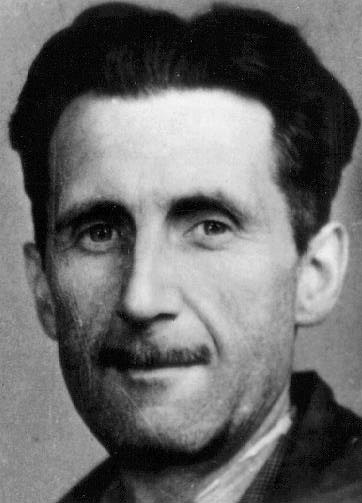HE’S BACK!!! Dominic Sandbrook presents the BBC2 series Strange Days: Cold War Britain, part of a season of programmes examining what the Beeb calls the “superpower stand-off” that began after World War II. “Red Dawn”, the first instalment in this three-part series, was packed with more incident, big personalities and creeping paranoia than your average 13-part blockbuster drama. There was no way this story could be anything less than enthralling. So why then did I find myself fixating on the shortcomings of the production and its presenter?
I had watched Dominic’s earlier series The 70s, so it probably shouldn’t have been a surprise that he’s still busy overemphasising for Britain. His hammy delivery is the TV equivalent of peppering your sentences with italics and capitals and then ending them with a screamer (that’s an exclamation mark!). After a sobering reminder that Britain has been at war for “five of the last eight decades”, Dominic announced “It was a war that FRAMED all our lives!”. Just in case you didn’t get the point, there was the accompanying frame-shaped hand gesture to ram home his point.
You should also know that Dominic’s documentaries are best watched with a mobile device close by, so that you can Shazam the multitude of musical selections and add them to your playlist. Beginning with the silky smooth tones of Julie London singing “Our Day Will Come”, Strange Days kept throwing new tunes into the mix at the rate of about one every two minutes. Presumably, the programme-makers think that viewers have such a short attention span these days that all factual TV must be edited in the style of a YouTube greatest hits packages. That is sad.
From Winston Churchill’s 1946 speech in Fulton, Missouri about the growing threat of the Iron Curtain (“Don’t Fence Me In”), to the Soviet invasion of Hungary a decade later, Strange Days wove together a multitude of storylines. Dowdy postwar Britain was both in thrall to the “special relationship” with glamorous America and living in fear of what Churchill dubbed “the poison peril from the East”.
Not so much Very Reverend as incredibly deluded, Hewlett Johnson “fell in love with Communism in action” in the 1930s.
Then, as now, the British press were quick to turn on foreign visitors who abused the hospitality of our great nation. In November 1945, a tour by the all-conquering Moscow Dynamo football club began with cheers, flowers and record crowds turning up to watch the nimble Russian visitors play Chelsea at Stamford Bridge. But before long the newspapers rounded on these “secretive, surly and suspicious” Soviets, whose rough-house antics on the field were as troubling as their connections to the secret police. The visitors responded by accusing the home teams of being “stuck in the past” tactically. Well some things never change.
While the names of Cambridge spies like Burgess and Maclean are written in infamy, I must admit that I wasn’t familiar with another of the Soviet Union’s biggest fans, Hewlett Johnson. Nicknamed the Red Dean of Canterbury, the white-haired Johnson looked like one of those dotty vicar characters you see in Ealing comedies. Not so much Very Reverend as incredibly deluded, Johnson “fell in love with Communism in action” in the 1930s. He was convinced that the tyrannical Stalin was a benign figure, whose policies promised both economic and spiritual salvation. Johnson’s unwavering support was rewarded with the Stalin International Peace Prize in 1951 and perhaps a one-way ticket to Purgatory.
As a red-nosed Dominic Sandbrook stomps across a snowy Red Square, contemplating the unholy alliance between Johnson and Stalin, “Mad about the Boy” plays on the soundtrack. But to borrow a phrase from another Noel Coward song, I think “Mad dogs and Englishmen” would be a better description of this “strange romance between the Soviet tyrant and the Anglican priest”.
Never Had It So Good: A History of Britain from Suez to the Beatles





1 Pingback